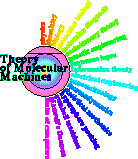On occasion non-scientists write to me with questions.
Here are some guidelines for how to interact with me so that
our time is not wasted.
(Most scientists do these things automatically.)
- Please identify yourself. What state, city and country
(if not obvious) are you in? What do you do?
I like to know who I am communicating with.
Sig lines are fine.
- Please tell me how you found my web pages. I'm curious.
- I ask that you be strictly honest with both me and yourself.
(See the book
HONEST MAN'S PHILOSOPHY
by Thomas E. Blaylock, Jr.)
- Please be polite.
If there is a record on the web of you being impolite,
I will know about it and take that into account.
- I ask that you respond to all of my questions.
It is frustrating to take the time to write several questions
and then only to have the first one responded to.
- I ask that you make a good faith effort to locate and read
completely all references I give you before you respond.
I spent the time to get the reference to you,
it is frustrating to see that time wasted.
- Look closely at your assumptions and investigate
how you know things.
-
Technical details:
- Use good English and grammar. Take the time to correct your
email so I don't have to waste time figuring out what you meant.
- Do not send me word documents!
- Use
proper quoting - trim your emails!
- Do not
Top post! - don't put things out of normal reading order!
- Do not send me material that is available on the web!
Instead, use google to locate the material and
tell me the URL.
If you do these things I may be willing to take some time to guide you
into the mysteries of molecular information theory.
I may chose to publish parts of our discussion on the web,
especially the parts I write. I will tell you about it.
I will not quote out of context.

![]()

![]()